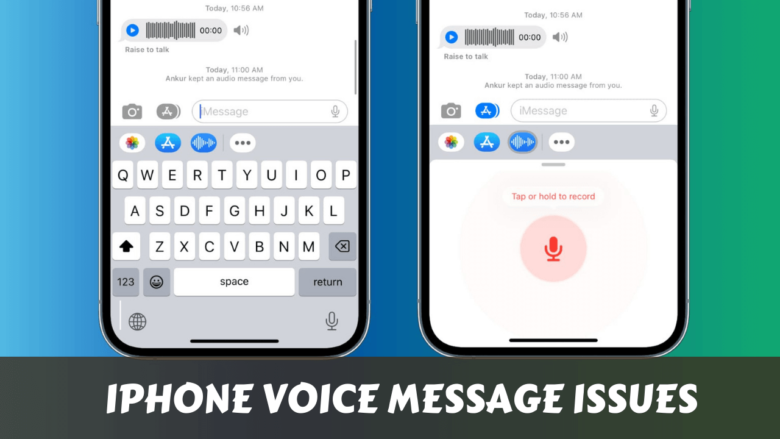- Why College Students Need Credit Cards (The Truth Nobody Tells You)
- Types of Credit Cards for Students
- Student Credit Cards
- Secured Credit Cards
- Becoming an Authorized User
- 💖 You Might Also Like
- What to Look for in Your First College Credit Card
- No Annual Fee
- Low Interest Rates (APR)
- Rewards That Actually Matter
- Credit Limit That Makes Sense
- Good Mobile App
- Red Flags to Avoid
- High Annual Fees
- Crazy High Interest Rates
- Prepaid Cards
- Cards That Require a Co-signer
- How to Use Your First Credit Card Responsibly
- The 30% Rule
- Pay It Off Every Month
- Set Up Automatic Payments
- Track Your Spending
- ✨ More Stories for You
- Building Credit in College: The Long Game
- Start Small
- Use It Regularly (But Not Much)
- Monitor Your Credit Score
- Keep Your First Card Forever
- Common Mistakes College Students Make
- Treating It Like Free Money
- Only Making Minimum Payments
- Applying for Too Many Cards
- Using It for Spring Break
- Ignoring Your Statements
- Best Practices for College Credit Card Success
- Set a Monthly Spending Limit
- Use It for Fixed Expenses
- Don’t Share Your Card Info
- Have a Plan for Emergencies
- 🌟 Don't Miss These Posts
- Top Credit Cards for College Students
- Chase Freedom Student Card
- Discover it Student Cash Back
- Capital One Journey Student Rewards
- Bank of America Cash Rewards for Students
- FAQs About College Credit Cards
- Can I get a credit card without income?
- Will getting a credit card hurt my credit score?
- What if I get denied?
- How much should I spend on my first credit card?
- Should I get a credit card from my bank?
- Can I use my credit card for cash?
- What happens if I miss a payment?
- Should I close my first credit card later?
- The Bottom Line on Choosing Your First College Credit Card
You’re sitting there wondering if you should get a credit card in college.
Your friends are talking about building credit.
Your parents are freaking out about debt.
And you’re just trying to figure out what the heck you actually need.
Here’s the thing – choosing your first credit card as a college student doesn’t have to be rocket science.
I’m going to break this down for you like we’re grabbing coffee and you asked me for the real deal.
Why College Students Need Credit Cards (The Truth Nobody Tells You)
Most people will tell you credit cards are evil.
They’re wrong.
Credit cards are tools.
Like a hammer – you can build a house or smash your thumb.
Here’s why you actually need one in college:
- Building credit history early (this is huge)
- Emergency situations when your debit card gets declined
- Online purchases that require credit cards
- Rental cars and hotels won’t take debit cards
- Cash back and rewards on stuff you’re already buying
But here’s what they don’t tell you.
Starting your credit journey in college gives you a 4-year head start over people who wait until graduation.
Types of Credit Cards for Students
Student Credit Cards
These are made specifically for people like you.
No credit history?
No problem.
Lower credit limits.
Easier approval requirements.
Some even give you rewards for good grades (I’m not kidding).
Secured Credit Cards
You put down a deposit.
That becomes your credit limit.
Put down $500, get a $500 limit.
It’s like training wheels for credit cards.
Becoming an Authorized User
Your parents add you to their card.
You get a card with your name on it.
Their payment history helps build your credit.
Smart move if your parents are responsible with money.
💖 You Might Also Like
What to Look for in Your First College Credit Card
No Annual Fee
This should be non-negotiable.
You’re a broke college student.
Why would you pay $95 just to have a credit card?
There are plenty of great cards with zero annual fees.
Low Interest Rates (APR)
Here’s the thing about interest rates.
If you’re paying interest, you’re doing it wrong.
But life happens.
Sometimes you carry a balance.
Look for cards with APRs under 25%.
Rewards That Actually Matter
Don’t get distracted by fancy rewards you’ll never use.
Focus on:
- Cash back on groceries (you gotta eat)
- Gas rewards (if you have a car)
- General cash back on everything else
Credit Limit That Makes Sense
You don’t need a $5,000 limit.
That’s just temptation waiting to happen.
Start with $500-$1,000.
You can always ask for increases later.
Good Mobile App
You’re going to manage everything on your phone.
Make sure the bank has an app that doesn’t suck.
You want to check balances, pay bills, and set up alerts easily.
Red Flags to Avoid
High Annual Fees
I already said this, but I’m saying it again.
No annual fees.
Period.
Crazy High Interest Rates
Some cards have APRs over 30%.
That’s loan shark territory.
Avoid them.
Prepaid Cards
These aren’t credit cards.
They don’t build credit.
They’re just expensive debit cards.
Don’t fall for the marketing.
Cards That Require a Co-signer
Unless your parents are begging to help you.
Try to get a card on your own first.
It builds independence and responsibility.
How to Use Your First Credit Card Responsibly
The 30% Rule
Never use more than 30% of your credit limit.
Have a $1,000 limit?
Keep your balance under $300.
This keeps your credit score happy.
Pay It Off Every Month
This is the golden rule.
Treat your credit card like a debit card.
Only spend money you actually have.
Pay the full balance before the due date.
No exceptions.
Set Up Automatic Payments
Life gets busy in college.
You’ll forget to pay your bill.
Set up autopay for at least the minimum.
Better yet, set it for the full balance.
Track Your Spending
Use your bank’s app or something like Mint.
Know where your money is going.
College expenses add up fast.
✨ More Stories for You
Building Credit in College: The Long Game
Start Small
Your first purchase should be something tiny.
A pack of gum.
A coffee.
Something you can pay off immediately.
Use It Regularly (But Not Much)
Don’t let your card sit in a drawer.
Use it once a month for something small.
Then pay it off.
This shows consistent, responsible use.
Monitor Your Credit Score
Many banks give you free credit score tracking.
Check it monthly.
Watch it grow as you use your card responsibly.
Keep Your First Card Forever
Even when you get better cards later.
Keep your first one open.
It helps your credit history length.
Just use it once every few months to keep it active.
Common Mistakes College Students Make
Treating It Like Free Money
It’s not free money.
It’s borrowed money.
You have to pay it back.
With interest if you’re late.
Only Making Minimum Payments
This is how you stay in debt forever.
Minimum payments barely cover interest.
Always pay the full balance.
Applying for Too Many Cards
Each application hits your credit score.
Start with one card.
Get good at managing it.
Then consider a second one later.
Using It for Spring Break
Don’t finance your vacation.
If you can’t afford spring break with cash.
You can’t afford spring break.
Ignoring Your Statements
Read them every month.
Check for weird charges.
Make sure your payments went through.
Catch problems early.
Best Practices for College Credit Card Success
Set a Monthly Spending Limit
Decide how much you’ll put on your card each month.
Stick to it.
I recommend starting with $100-200.
Use It for Fixed Expenses
Put your Netflix subscription on it.
Or your Spotify.
Something you’re paying anyway.
Then set up autopay.
Easy credit building.
Don’t Share Your Card Info
Your roommate isn’t responsible for your credit.
Keep your card details private.
Only you should be using your card.
Have a Plan for Emergencies
What counts as an emergency?
Car repair: Yes.
Concert tickets: No.
Define it before you need it.
🌟 Don't Miss These Posts
Top Credit Cards for College Students
Chase Freedom Student Card
No annual fee.
1% cash back on everything.
5% rotating categories.
Good mobile app.
Discover it Student Cash Back
No annual fee.
5% rotating categories.
1% on everything else.
They match your cash back first year.
Capital One Journey Student Rewards
No annual fee.
1% cash back on everything.
1.25% if you pay on time.
Good for building credit.
Bank of America Cash Rewards for Students
No annual fee.
3% on gas.
2% on grocery stores.
1% on everything else.
FAQs About College Credit Cards
Can I get a credit card without income?
Yes, but it’s harder.
You can include financial aid as income.
Or money your parents give you.
Some cards are specifically for students with no income.
Will getting a credit card hurt my credit score?
The application will cause a small, temporary dip.
But using the card responsibly will improve your score long-term.
What if I get denied?
Don’t panic.
Try a secured card instead.
Or become an authorized user on a parent’s card.
Build some history and try again in 6 months.
How much should I spend on my first credit card?
Keep it under 30% of your limit.
If you have a $500 limit, spend less than $150.
Should I get a credit card from my bank?
Not necessarily.
Shop around for the best deal.
But having everything at one bank can be convenient.
Can I use my credit card for cash?
You can, but don’t.
Cash advances have higher interest rates.
And fees.
Use your debit card for cash.
What happens if I miss a payment?
Late fees.
Higher interest rates.
Damage to your credit score.
Set up autopay to avoid this.
Should I close my first credit card later?
Probably not.
Keeping it open helps your credit history length.
Just use it occasionally to keep it active.
The Bottom Line on Choosing Your First College Credit Card
Here’s what matters most.
Get a card with no annual fee.
Use it responsibly.
Pay it off every month.
Don’t treat it like free money.
Your future self will thank you for starting early and doing it right.
Building credit in college isn’t just about having a card.
It’s about proving you can handle financial responsibility.
Do that, and choosing your first credit card as a college student becomes the smartest money move you’ll make in college.
Start small.
Stay consistent.
And remember – the goal isn’t to have the fanciest card.
The goal is to build a foundation for your financial future.
One responsible purchase at a time.




















